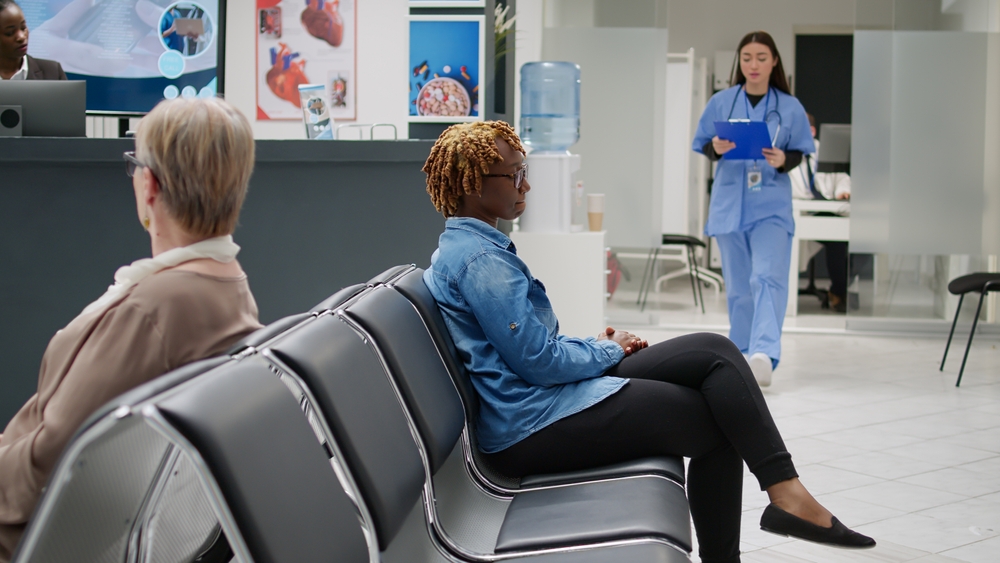
Remember when going to the doctor felt straightforward? You’d get sick, you’d go in, they’d fix it—or at least try to. These days, medicine feels like it’s changing faster than we can schedule an appointment. Behind the scenes, the healthcare system has quietly evolved, adopting new technology, shifting priorities, and reshaping the doctor–patient relationship in ways most people never notice.
Some of these changes are brilliant, others are baffling, and a few might just make you raise an eyebrow. Let’s pull back the curtain and look at the modern medical shifts that happened while you were busy signing digital forms in the waiting room.
1. Doctors Spend More Time on Screens Than with Patients
You’ve probably noticed it: your doctor typing furiously into a laptop while you sit on the exam table, trying to describe your symptoms. Electronic health records were meant to make medicine more efficient, but instead, they’ve turned physicians into part-time data entry specialists. Many spend double the time updating digital charts as they do talking to actual patients. It’s not that they don’t care—they’re simply required to log every click, every prescription, every interaction. The result? Patients sometimes feel unseen while their doctor battles the software instead of the sickness.
2. Virtual Visits Are Quietly Taking Over
Telehealth used to sound futuristic, but now it’s as common as scrolling social media. While virtual medicine exploded during the pandemic, it didn’t slow down afterward—it simply became the new normal. Patients can now get diagnosed, prescribed, and even referred to specialists from their couch. It’s convenient, sure, but it’s also changing how care feels. The personal touch of an in-person visit is slowly being replaced by a screen-side manner, and some patients are realizing that not every condition translates well over Wi-Fi.
3. Artificial Intelligence Is Reading Your Chart
It’s not just your doctor reviewing your medical notes anymore—AI is too. Modern hospitals and clinics now use algorithms to predict everything from who might skip an appointment to who’s likely to develop diabetes next year. These systems crunch data from thousands of patients to “assist” doctors in making faster, smarter choices. The catch? Many patients have no idea their medical information is being analyzed by an algorithm. It’s efficient, yes—but also raises questions about privacy, accuracy, and what happens when the machine gets it wrong.
4. Personalized Medicine Is Quietly Rewriting Prescriptions
Gone are the days when everyone got the same drug for the same diagnosis. Modern medicine has entered the age of personalization—where your genetics, lifestyle, and even gut bacteria can determine your treatment plan. Scientists call it “precision medicine,” and it’s already reshaping how conditions like cancer and heart disease are treated. But here’s what few people realize: it also means the trial-and-error phase of prescriptions is shrinking, and insurance companies are scrambling to keep up with the technology. If your next medication feels tailor-made, it probably is—and it’s part of a revolution happening right under your nose.
5. The Death of the Paper Prescription
That little pad doctors used to tear off and hand you. Practically extinct. E-prescriptions have become the new law of the land, zipping your meds directly to the pharmacy in seconds. It’s convenient for patients and safer for accuracy, but it also means your prescriptions now live in massive digital databases accessible by multiple providers. That transparency helps coordinate care—but it also means your medication history is now a permanent part of your medical fingerprint. Its progress wrapped in a privacy puzzle, and most people never knew it even happened.
6. Waiting Rooms Are Becoming Data Centers
You might think you’re just filling out a few forms before your appointment, but those digital questionnaires are part of something bigger. Modern clinics now use patient intake data to measure satisfaction, predict health outcomes, and improve operations. That means every symptom you check and every rating you give feeds into systems that shape how your future care looks. In theory, it’s designed to make healthcare smarter. But it also blurs the line between personal experience and corporate data mining—and you probably never signed up for that.

7. Pharmacies Are Acting Like Mini-Clinics
Pharmacies used to be places where you just picked up medication. Now, they’re quietly transforming into small healthcare hubs, offering vaccines, checkups, and even telehealth consultations. Pharmacists are taking on expanded roles as accessible healthcare providers, filling the gaps left by overbooked doctors. This shift has been great for convenience, but it also changes the traditional chain of care—suddenly, your pharmacist might know more about your daily health than your physician. It’s a modern twist on community medicine that few saw coming.
8. Your Health Apps Are Part of the System Now
Those step counters, sleep trackers, and calorie apps you use. They’re not just motivating you—they’re collecting valuable data that’s increasingly being integrated into medical systems. Some hospitals now allow patients to sync wearable data with their records, helping doctors get a fuller picture of lifestyle habits. But with great data comes great responsibility, and not every app plays by the same privacy rules as hospitals. You might be handing over more personal health information than you realize—all in the name of convenience. The line between healthcare and tech company has officially blurred.
The Future of Medicine Isn’t Coming—It’s Already Here
Medicine has always evolved, but the pace of change in the past decade has been dizzying. From AI-driven diagnoses to digital prescriptions and data-filled waiting rooms, the world of healthcare has been quietly rewired. Some of these innovations are lifesaving; others are quietly shifting how much control patients really have over their own care. The question isn’t whether modern medicine has changed—it’s whether patients were ever given the full story.
What do you think about these behind-the-scenes shifts? Share your experiences, thoughts, or stories in the comments below—we’d love to hear how these changes have touched your life.
You May Also Like…
Why Do Prescription Discount Cards Sometimes Make Medicines More Expensive
8 Times Doctors Were Paid to Ignore the Obvious
Can You Afford to Live to 100? How Longevity Medicine Is Changing Retirement Planning
Why Do Doctors’ Offices Bill Patients Months Later?
Could Emergency Room Bills Be Higher Simply Because of Zip Code?
The post 8 Modern Medicine Changes Patients Were Never Told About appeared first on Everybody Loves Your Money.







